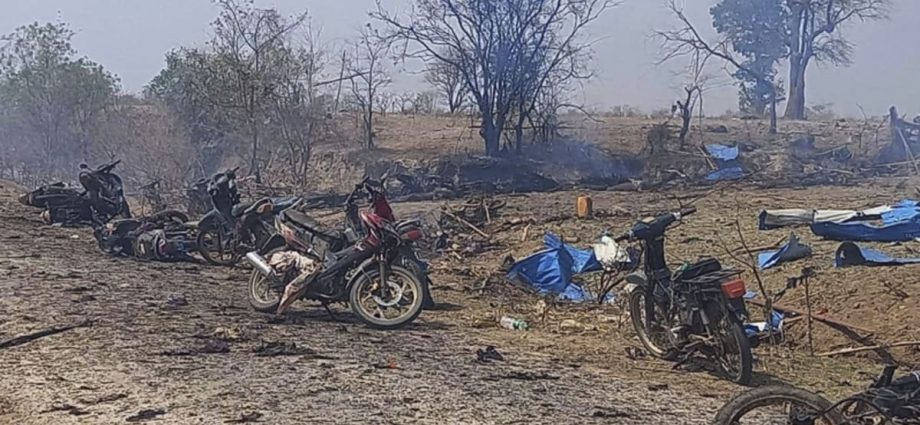
Chair Indonesia also reiterated ASEAN’s commitment to continue assisting Myanmar “in seeking a workable and durable solution to the ongoing crisis through promoting the full implementation of the Five-Point Consensus”.
In 2021, ASEAN and junta chief General Min Aung Hlaing reached a five-point consensus on the violence in Myanmar during a summit in Jakarta.
The points include an immediate cessation of violence in Myanmar and all parties to exercise “utmost retraint”, as well as constructive dialogue among all parties concerned to “seek a peaceful solution in the interests of the people”.
The leaders also agreed that a special ASEAN envoy would facilitate mediation of the dialogue process, that ASEAN would provide humanitarian assistance and that the envoy and delegation would visit Myanmar to meet with all parties concerned.
Sagaing region – near Myanmar’s second-largest city, Mandalay – has put up some of the fiercest resistance to the military’s rule, with intense fighting raging there for months.
Before military aircraft attacked Pazi Gyi village, scores of locals had gathered to mark the opening of a local defence force office.
Myanmar’s National Unity Government (NUG), a shadow body dominated by former lawmakers from ousted civilian leader Aung San Suu Kyi’s party, condemned the strikes as a “heinous act”.
“We … share the great pain felt by the families affected by this tragedy,” it said in a statement.
United Nations rights envoy Tom Andrews said on Wednesday that the international community needs to stop the flow of weapons into Myanmar and work together to impose coordinated sanctions against the country’s junta.
Noting that Myanmar’s military junta is being supplied by member states of the UN, and he urged countries to push them to stop sending materials to the junta.
UN rights chief Volker Turk said he was “horrified” by the deadly air strikes, whose victims he said included schoolchildren performing dances, with the global body calling for those responsible to be brought to justice.

